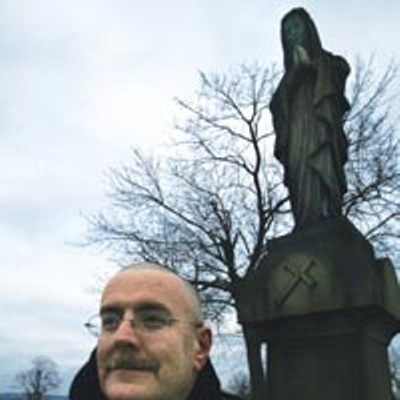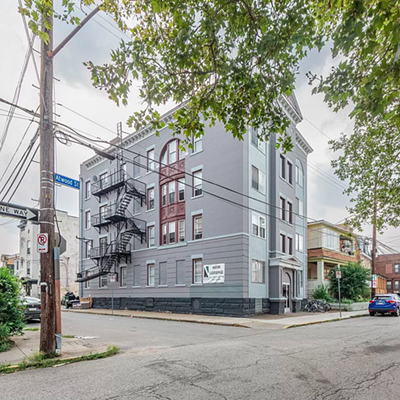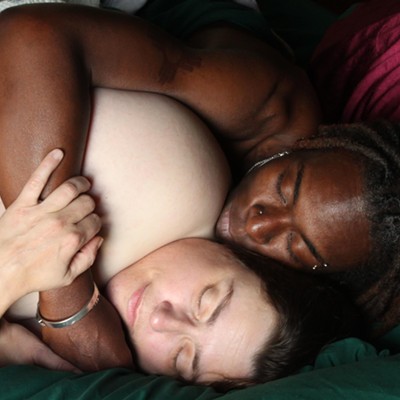Whenever you see Chris Ivey, he's ready to shoot -- if not with his giant video camera, then at least with any number of digital gadgets tucked away in his many pockets. Over the past few years, Ivey's shot the finest in television advertisements, as well as music videos for local bands, a disaster-movie spoof on the transit funding crisis and commercials for mayoral candidate Bill Peduto. Even though he's most comfortable behind the camera, Ivey sat down to talk about his current project: a documentary about the impending demolition -- in September -- of East Liberty's East Mall high-rise, the apartment building that straddles Penn Avenue.
He asks that anyone with stories to share about East Mall -- especially former residents -- e-mail him at [email protected].
Tell me about the documentary.
It's about the high-rises in East Liberty coming down. Part of it just wants to be a document, for the residents who have lived through it, so their story won't be forgotten. And for a reminder of past mistakes, to not screw up too much in the future. And to show the direction the area's going now. As the high-rises come down, the area around it is starting to build up.
What drew your interest to the high-rise?
The story of people who've been displaced. [I want] to focus on the history of black Americans and the feeling of place, of always being misplaced. What grabbed me about it is, if this doesn't get documented, how's it gonna be remembered? Even when they had the [event] where they shot the paintballs [at East Mall], what is it gonna be remembered for? I think it's always been downplayed and pushed aside.
And it's important to show all sides -- that's the most important part of the documentary.
What do you think the mistakes are?
It depends on who you ask, but a lot of people say it was a mistake from the beginning. Even today, when they try to attract people to live in the city, they still have the same problem. Instead of asking the citizens for their input, "How can we make the city better?" they go directly to, "We know what's best for you, trust us on this, it'll be incredible, you'll love it."
What did you learn was the initial rationale for this project?
It depends on who you ask. One person said it was to help better the shopping community, bring more traffic back to the East Liberty area. But if you ask other people, doing what they did was the nail in the coffin. [Still] other people say it could've been, like, prejudice in a way, because the area was doing well as a black shopping area there was kind of like jealousy. Those are the different things you hear.
As if the people in charge didn't see the value of what was there: "Those are stores, but they're not real stores. They're just stores that blacks go to."
Exactly. You should invest in what you already have and make it grow, instead of taking a big gamble.
The people who lived there, where are they now?
All scattered out. Some are living close by, still around, others just got out of town.
Were any of the residents nostalgic for the building, even though people thought it was a mistake to begin with?
Oh, yeah. For a lot of people, it's their home. I did an interview with this one lady, Althea Sims, and she pointed out that, at times, the building got really bad. She describes how it was all dark and dingy, but when you go into people's [apartments], they were nice.
What's the length you're aiming for?
Forty-five minutes to an hour. The first thing we'll try to do is premiere it in October at the Kelly-Strayhorn for a couple days. Then hopefully a couple film festivals.
Who are you talking to?
As many people as I can. I've talked to three ex-residents. Throughout the summer, I'd like to interview up to 50 residents.
There's this one lady I want to interview, she was one of the first ones to move into the high-rise, she gave up her house. Then she was one of the last to move out. They say she's up in the Hill District somewhere, in her 80s now.
What's the most surprising thing that you came across?
Just how easily things can be forgotten. I think that's what bothers me.














